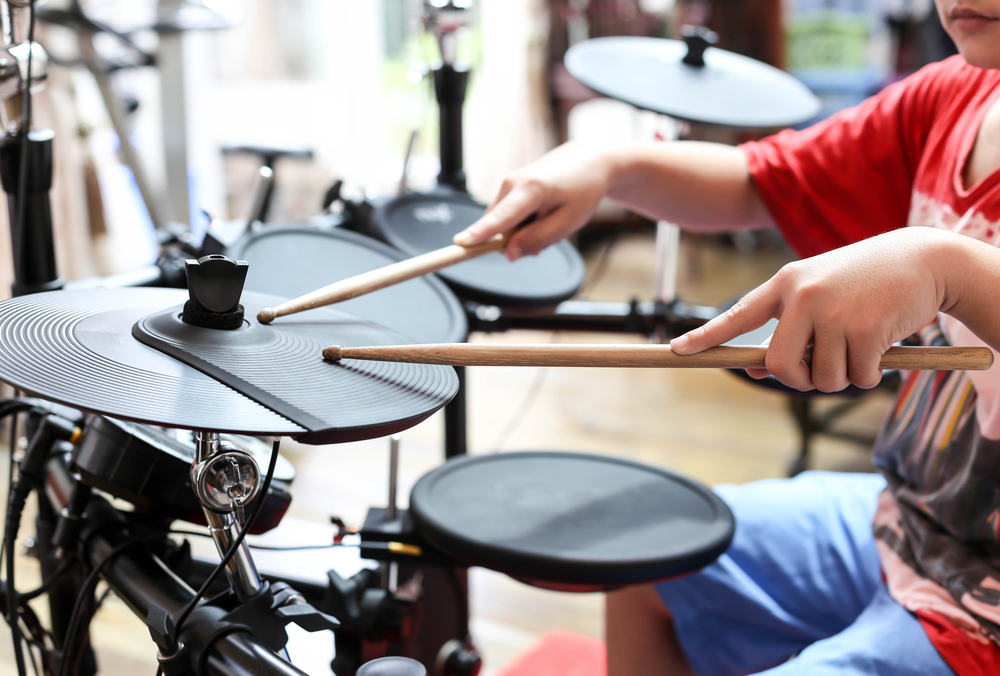Contents:
- Medical Video: Tummy time exercises for your baby
- Development of Infants Aged 8 Weeks
- How should the baby develop 8 weeks?
- What should I do with my baby?
- Health for babies aged 8 weeks
- What do I need to discuss with the doctor?
- What should I know?
- Which must be considered
- What should I pay attention to?
Medical Video: Tummy time exercises for your baby
Development of Infants Aged 8 Weeks
How should the baby develop 8 weeks?
In the development of an 8-week baby, you might be surprised when you see your little one suddenly silent. Don't worry, because this is a natural thing. Yes, your baby is silent because he is observing the surrounding environment.
Well, here is the right time for you to get your child to interact. You can invite him to talk, sing, listen to music, or just describe what you are doing in full detail. Your baby may not understand what you are doing and talking about, but he will slowly learn to absorb your voice and your experience.
Other 8 weeks of baby development that you can observe are:
- Lift your head up to 90 degrees when facedown
- Lift your head firmly
- Put his hands together
- It suddenly becomes silent because the baby is actually watching and learning.
What should I do with my baby?
In the development of an 8-week baby, this is an important time for your child to learn. You invite him to communicate, speak, and sing, describe pictures whenever and wherever. You can also talk while cradling a baby while humming, or when changing diapers and breastfeeding.
The various methods above are the best method for you to help develop your language, hearing and vision skills.
Health for babies aged 8 weeks
What do I need to discuss with the doctor?
Examination of the baby this week will usually depend on the health condition of the child. If your child has an unusual complaint, don't hesitate to consult a doctor. Usually during a physical examination, the doctor will examine the following:
- Heartbeat with a stethoscope, and visually through the chest wall
- The stomach, by touching, finds abnormalities in the hip, checking if there is a shift by rotating the legs.
- Hands, arms and legs, for normal development and movement.
- Back and backbone to find abnormalities.
- Eyes, with an ophthalmoscope or small flashlight, for normal reflexes and focus, as well as the function of tear vessels. With an otoscope, for color, fluid, ear movement.
- The nose, with an otoscope, for the color and condition of the mucous membrane.
- Mouth and throat, using a tongue press made of wood, to see colors, cuts, bumps.
- The neck, for movement, the normal size of the thyroid and lymph glands (lymph glands are more easily felt in infants, and this is normal).
- armpit, for swollen lymph glands.
- The soft part of the head, by feeling.
- Breathing and its function, by observation, and sometimes with a stethoscope and / or light blows on the chest and back.
- Genitals, for any abnormalities, such as hernias or undescended testicles, cracks in the anus.
- Healing umbilical cord and genitals circumcised.
- Skin, for color, rash, and wounds, such as birthmarks.
- Movement and overall habits, the ability to interact with other people.
What should I know?
There are a number of things you should know to help develop an 8-week baby, including:
1. Hiccups
Actually babies can hiccups during the womb. Experts say that the reason is baby's reflex. Another theory is that babies hiccup when they swallow substances or breast milk, fill the stomach with air. No need to worry if your baby hiccups. You can overcome this by giving breast milk and letting it belch. After that, adjust the position of the little one. Posisikan baby in an upright condition, can with while holding. Then pat the baby gently. This aims to help gas in the stomach go up.
2. Sneezing
A number of amniotic fluid and mucus remaining in the respiratory tract is normal for babies. Frequent sneezing will help the baby clean and remove foreign particles from the environment that clog the nose. Babies may also sneeze when exposed to light, especially sunlight.
3. Baby's eyes
Don't worry if you notice your baby's eyes are visible squint. Actually, in most cases, this is just an additional skin fold at the end of the inner eye that makes the baby look squinted. When the folds pull back, the eyes begin to look more parallel. To be sure, tell your doctor about your anxiety during the next examination.
During the first few months, you may also notice your baby's eyes are not working simultaneously. Random eye movements like this mean he is still learning to use his eyes and strengthen eye muscles; within 3 months, coordination will be better. If in more than 3 months your baby's eyes still look unidirectional, talk to your doctor about this problem.
Which must be considered
What should I pay attention to?
One habit that you should pay attention to is sucking dot. Consider this before deciding whether to give a pacifier, and if yes, when to start and how long to use it.
Using pacifiers can shorten the duration of breastfeeding. However, other studies have concluded that giving a pacifier early will not cause the syndrome confused nipples or prevent the success of breastfeeding in the first 3 months. You can control your baby's use of pacifiers. If used wisely, this can even help when you are swinging, singing, and pushing with a baby carriage for hours.
However, pacifiers can also be detrimental if the baby becomes too dependent and relies on it. Pacifiers who are sucked at bedtime can disrupt baby's learning to sleep independently. This can also interfere with sleep if the pacifier is released and keeps the baby awake, and can no longer sleep without pacifiers. You have to get up just to put it in the baby's mouth.
It's best to use the pacifier for a while. Use pacifiers is just to meet the needs of sucking when really needed, when you are in a state of urgency that cannot breastfeed your child. The use of long-term pacifiers can make babies not let go, and make habits that are difficult to remove.
How is your baby developing the next week?












